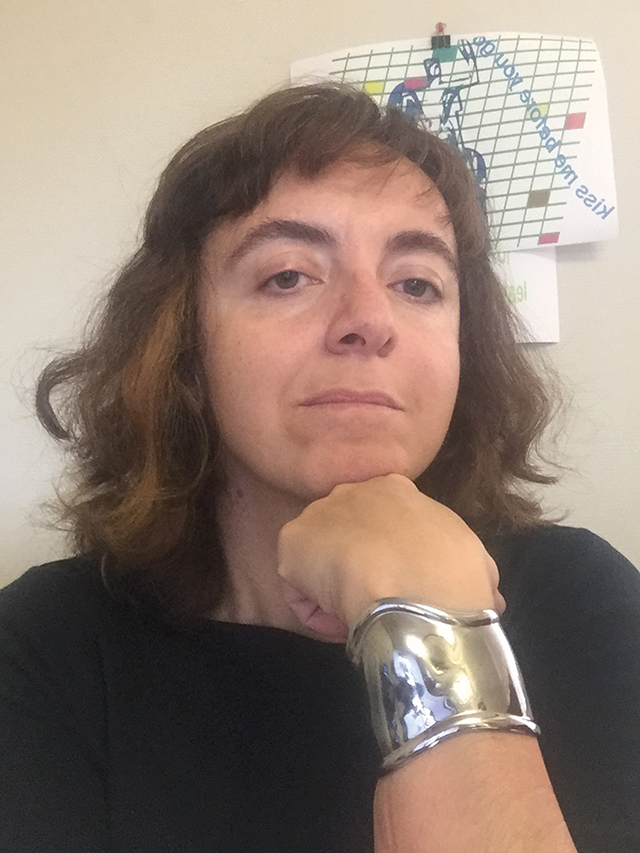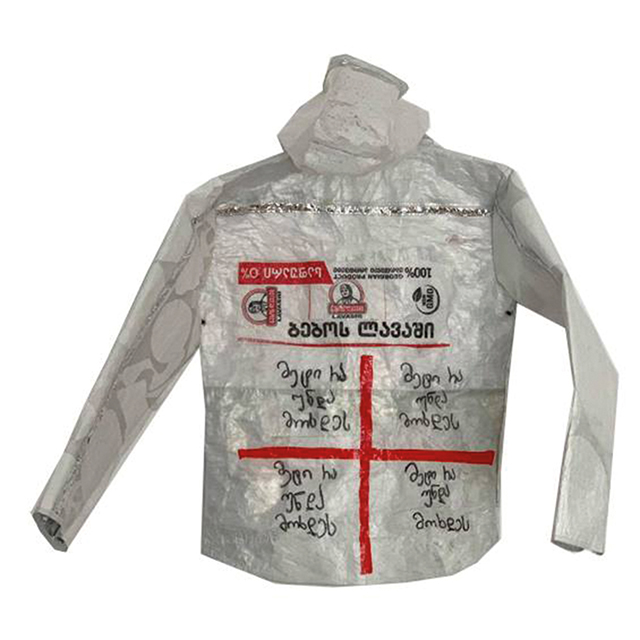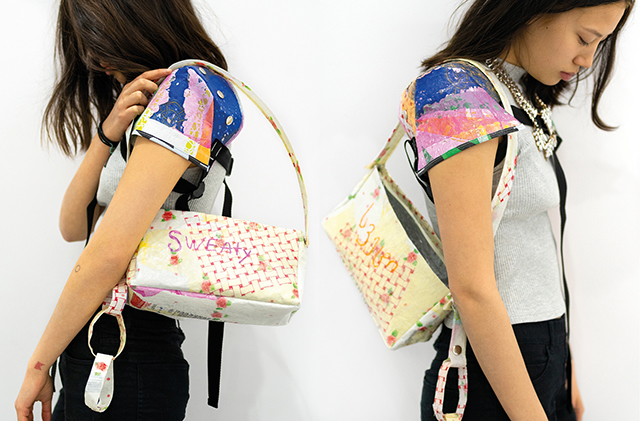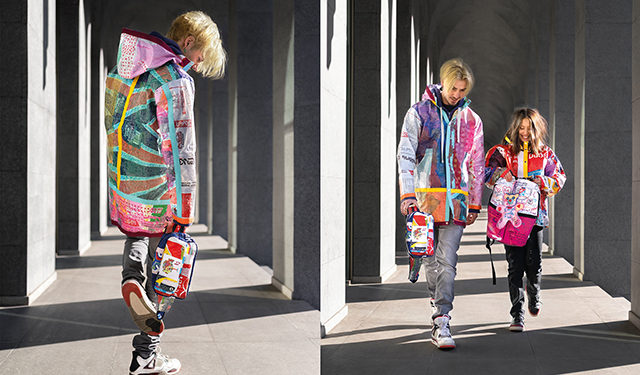Plastic-watcher Eka Asatiani and I have known each other since our early teens. We both lived through the tough and restrictive soviet times, and equally experienced the hard post-soviet era. The plastic bags with Marlboro cigarette logos were considered reusable back then, and were a prestigious item; a sign you might have visited the outside world.

When reminiscing on the fun times, Eka and I realize that, sadly, such plastic bags, in fact anything plastic, has become a nightmare for our planet.
She turned up at our meeting wearing recycled clothing adorned with colorful roses made entirely out of thrown-away plastic, most of which she had picked up while hiking or found in the trash. Eka believes that there is no such thing as throwing away something and forgetting about it.
“It’s impossible to take something, reject it, and chuck it away. It can’t be taken out of the universe. It is still here with us,” she says.
Though recycling and reusing is no new thing for Georgia, still Eka, and others like her, believe that biodegradation, as well as regular plastic recycling, should not be the only way found to save us.

“That’s where the circular economy comes in,” she says.
Inspired by Dame Ellen Patricia MacArthur, a retired successful solo long-distance yachtswoman from England, Eka explains her point, adding that it is not her job to preach to humans, but to encourage the alternatives of what to do with our refuse- items that can be reused rather than thrown away and possibly never be recycled.
“We must transform every element of our take-make-waste system,” Eka says. “Use and return is what I’m saying. It’s important what we do with those materials. Take the company Philips: when you buy their products, you buy the service as well. They will come and take away those bulbs you used. Such an approach completely changes human behavior.”
Eka refuses to throw away leftover items. “I would take this used and thrown away plastic banner, for example, and fix it up, using tape, a hot iron or baking paper, and will give it back to you if you want to use it again.”

Eka is also a staunch supporter of putting personal touches on items, like inspirational or fun writing.
The circular economy gives us the tools to tackle climate change and biodiversity loss while addressing important social needs. Indeed, when researching the circular economy, you will see its power to change the world for the better, giving societies the power to grow jobs and prosperity while cutting greenhouse gas, waste, and pollution.
Eka is an inspiration, and her ideas a novelty to me, despite my being a dedicated recycler already, always using recycle points for household rubbish, and being a big fan of vintage clothing and furniture. I get my dressmaker or tailor to alter not only clothing, but to turn curtains into table cloths, or old jumpers into bed throws. I also remember turning unwanted t-shirts into pillowcases and Christmas decorations.
Yet Eka’s items are much cooler and more modern than what I would make; I love vintage, but Eka’s coats are made from old thrown away Georgian lavash wrappers. It speaks volumes.
When I asked Eka what she thinks about how the large corporations or small and medium producers should step up their wasteful production, Eka answered that she doesn’t support harsh statements; rather, she says, love of this planet is an individual approach, like how you raise your child.
“If we all have it in our hearts that we should take care of something and be responsible, then it is already a good start. Humans should be respectful of themselves and their surroundings; that’s how the governments and the system change.”

Eka is more a dream generator than a fashion designer. Her work, she says, is to raise awareness. She splits her time between the workshop and the showroom and “doesn’t have time for sceptics” who reject her items to choose instead the luxury brands.
But when the luxury brands have already begun ditching fur and leather and other cruelly obtained items, it’s not so impossible to imagine them starting to recycle clothing. We need people like Eka pushing this agenda, and top celebrities showing that one dress can have a long life.
When I see Angelina Jolie turn up with her brood at a global premier in used clothes, or the royal princesses themselves reusing clothes, or choosing inexpensive brands, I feel the time is right: the time is coming to change the world for the better. We are a part of biodiversity. I am sure there will be a chain reaction!
By Helena Bedwell














